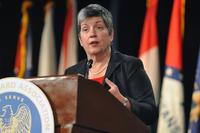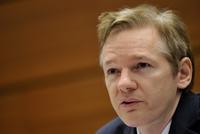-
Government IT contractors remain optimistic about future
Government services and information technology (IT) contractors remain optimistic about future growth; the defense industry still remains as “an $800 billion marketplace,” despite budget cuts and an increasing move by the federal government to insource contracts; IT firms are particularly positive about growth in key areas like cyber security, intelligence, and simulation; federal spending on cyber security is projected to reach $13.3 billion annually by 2015
-
-
Sourcefire expands westward
Maryland-based Sourcefire acquires Palo Alto-based Immunet for $21 million, expanding the company’s cybersecurity services; the acquisition will allow Sourcefire to accelerate its cloud-based initiative and provide a platform to expand its security services
-
-
Smart system to teach itself to jam new wireless threats
As wireless communication devices become more adaptive and responsive to their environment by using technology such as Dynamic Spectrum Allocation, the effectiveness of fixed countermeasures may become severely degraded; DARPA wants smart system that can learn to jam new wireless threats automatically
-
-
U.S. federal investment in cybersecurity to reach $13.3 billion by 2015
U.S. federal investment in information security will rise from $8.6 billion in 2010 to $13.3 billion by 2015 at a compound annual growth rate of 9.1 percent, nearly twice the rate of overall federal IT spending
-
-
Government secrecy harder to maintain in the Internet age
Among the likely consequences of WikiLeaks: threats of prosecution under the Espionage Act; proposed legislation that would make it illegal to publish the names of military or intelligence community informants; increased use of subpoena power to compel journalists to disclose confidential sources; the mainstream media, already experiencing an ongoing financial crisis, may be dissuaded from starting and continuing the long and expensive battle to obtain information that officials want to keep secret
-
-
Napolitano asserts DHS cybersecurity leadership

Cybersecurity should be led by DHS and not left to the market or the military, DHS secretary Janet Napolitano said; this year, DHS has expanded partnerships with private industry and worked to build up liaisons with private sector industries it deems to be “critical”; DHS has also improved its partnerships with military and military intelligence this year; in October, DHS and the Department of Defense signed a cybersecurity pact to improve collaboration between the agencies and boost DHS’s encryption and decryption capabilities by co-mingling National Security Agency (NSA) cryptologic analysts and DHS cybersecurity leadership in a move that signaled progress in a sometimes uneasy relationship with the military
-
-
WikiLeaks exposes tensions between "need to know" and "need to share"
The WikiLeaks posting of stolen classified information has highlighted the tension between the strategy of “share to win” and the necessity to enforce “need to know”; share to win refers to the idea of getting information and intelligence out to the personnel who need it; need to know is about how information is shared, who has the information, for what purposes and for what period of time
-
-
Lawmakers urge Obama to expand State Department's cybercrime reach
Lawmakers call President Obama to expand the U.S. State Department’s foreign policy mechanisms to address crime and security on the Internet; Senator Kirsten Gillibrand (D-New York) joined with Senator Orrin Hatch (R-Utah) to author the International Cybercrime Reporting and Cooperation Act; this bill will hold foreign countries accountable for cybercrime committed on their soil
-
-
Senate bill would require minimum cybersecurity standards for Internet
Senator Benjamin Cardin (D-Maryland) has introduced a bill that would require the U.S. government to work with the private sector to propose minimum standards for internet and cybersecurity safety; “Just as automobiles cannot be sold or operated on public highways without meeting certain minimum safety standards, we also need minimum Internet and cybersecurity safety standards for our information superhighway,” Cardin said
-
-
China's Huawei sets up U.K. cybersecurity center
China’s top telecommunications equipment maker Huawei Technologies has seen its plans for global expansion crimped by national security concerns among foreign governments; the company hopes that its Cyber Security Evaluation Center, opened last month in Britain’s Banbury, will allay those fears
-
-
DHS slowly moving government's Internet traffic to secure networks
It will take several more years for the U.S. government fully to install high-tech systems to block computer intrusions, a drawn-out timeline that enables criminals to become more adept at stealing sensitive data, experts say; DHS is responsible for securing government systems other than military sites, and the department is slowly moving all the government’s Internet and e-mail traffic into secure networks — known as Einstein 2 and Einstein 3 — which eventually will be guarded by intrusion detection and prevention programs
-
-
U.S. State Department disconnects its computers from government-wide network

In response to the leaks published by WikiLeaks, the U.S. Department of States disconnected its computer files from the government’s classified network; by temporarily pulling the plug, the United States significantly reduced the number of government employees who can read important diplomatic messages; the network the Department has disconnected itself from is the U.S. Defense Department’s Secret Internet Protocol Router Network (SIPRNet), a system of dedicated and encrypted lines and servers set up by the Pentagon in the 1990s globally to transmit material up to and including “secret,” the government’s second-highest level of classified information; “Top secret” information may be shared electronically via the Joint Worldwide Intelligence Communications System (JWICS), another group of interconnected computer networks used by Defense and State to securely transmit classified information.
-
-
Defeating detector blinding attacks on quantum cryptography
Quantum cryptography is a method to distribute digital encryption keys across an optical fiber; the protocol has been proven to be perfectly secure from eavesdropping; any differences between the theoretical protocol and its real-world implementation, however, can be exploited to compromise the security of specific systems; one form of attack on quantum cryptography is called a detector blinding attack — but Toshiba researchers show how such attacks can be rendered ineffective
-
-
DHS to set cybersecurity standards for some private networks
A new law — “The Homeland Security Cyber and Physical Infrastructure Protection Act of 2010” — will empower DHS to set cybersecurity standards for some private networks that are considered critical infrastructure
-
-
Symantec: Stuxnet targeted Iran's uranium enrichment program
Symantec says Stuxnet worm aimed to disrupt electrical motor controls, like those used by gas centrifuges to enrich uranium; Stuxnet, considered by many security researchers to be the most sophisticated malware ever, targeted Windows PCs that managed large-scale industrial-control systems in manufacturing and utility companies
-
- All
- Regional
- Water
- Biometrics
- Borders/Immig
- Business
- Cybersecurity
- Detection
- Disasters
- Government
- Infrastructure
- International
- Public health
- Public Safety
- Communication interoperabillity
- Emergency services
- Emergency medical services
- Fire
- First response
- IEDs
- Law Enforcement
- Law Enforcement Technology
- Military technology
- Nonlethal weapons
- Nuclear weapons
- Personal protection equipment
- Police
- Notification /alert systems
- Situational awareness
- Weapons systems
- Sci-Tech
- Sector Reports
- Surveillance
- Transportation
Advertising & Marketing: advertise@newswirepubs.com
Editorial: editor@newswirepubs.com
General: info@newswirepubs.com
2010-2011 © News Wire Publications, LLC News Wire Publications, LLC
220 Old Country Road | Suite 200 | Mineola | New York | 11501
Permissions and Policies
Editorial: editor@newswirepubs.com
General: info@newswirepubs.com
2010-2011 © News Wire Publications, LLC News Wire Publications, LLC
220 Old Country Road | Suite 200 | Mineola | New York | 11501
Permissions and Policies
